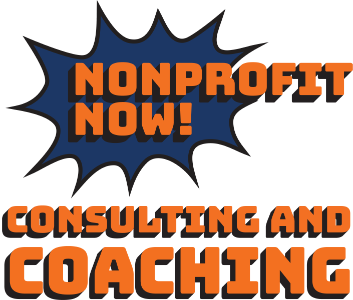|
"I'm an audience member looking at my life on a stage." These were the words of a coaching client I was working with. Not surprisingly, she's a lover of theater; hence, the metaphor. Her comment was the culmination of a conversation we were having about her interest in finding more purpose in her life. She was clearly committed to her work. Further, she was willing to make personal sacrifices to ensure its sustainability and success. Yet, when I asked what she was looking for, her answers were centered on her business. "I get that you're committed to your work" I shared. But what drives you? What are you personally trying to create in the world? On reflection, my client said that when she looked at the stage production of her life she saw lots of interesting scenery, several interesting acts but nothing necessarily pulling them together into a bigger more purposeful story, narrative or direction.
The timing of this conversation was ironic as I had just finished "Life Is In The Transitions", a book by one of my favorite authors, Bruce Feiler. In this book which I highly recommend, the author shares a number of insights. The overarching theme is topical and connects to a concept that's hot these days: Storytelling. It seems that whether you're in fundraising and nonprofit work (the zone where I spend lots of time), retail, tech, or just about anything else, you need to learn and master the art of Storytelling. We observe our lives and pretty much everything through the narratives we create about them. Feiler looks back at the way life stories were told before there was a more realistic understanding of life trajectories. He sites the the 1970's best-seller "Passages" by Gail Sheehy as symbolic of this prior thinking. "Passages" describes our lives as a series of linear and predictable life-stages based on our age and milestones we achieve (or don't achieve). In fact, this book helped usher in the idea of the mid-life crisis as there was a clear beginning, middle and end to most people's lives. It all seems rather tidy. Bruce Feiler counters that in reality, our story lines are rarely neat and clean. Not so different than my client's description. We don't simply move from place to place, one life passage to the next. Instead, our lives oscillate. Things go up, down, sideways, forward and sometimes backwards. It's the narrative we weave around them that give them definition and in the best case, true meaning and even definition. I agree with the idea of oscillation and our need to create meaning out of all of it. My life certainly fits the latter description. It would be wonderful if the trend line of my own life looked like stock in Amazon; however, it's been anything but. My twenties were fun and exciting. My daughter was the greatest gift I could have gotten for my thirtieth birthday. That was followed up by messy mid-thirties - in fact looking back, there was a brief downward spiral. I'm fortunate to have met my wife a few years before I had forty. I still had some hair, there was a lot more of me to love and I had very little idea of where my life was headed. Observing the joy she took in her work inspired me to find work I found meaningful. But even after finding meaning as well as the love and support of friends and family, there have been plenty of shocks to the system. This year alone has given me more life lessons than I've ever wanted to learn. I'm sure I'm not alone on that one. So, the above begs the question: Do you truly need a clear and definitive life purpose to be happy and successful? Napoleon Hill seemed to think so and made a name for himself by being an advocate of this sort of thinking. His book "Think and Grow Rich" is one of the oldest self-help guides for success. It continues to be one of the best-sellers out there. One of Hill's key points was that to achieve anything, someone needs a Definite Major Purpose. And it certainly doesn't hurt. The idea took hold and since then, we've seen a steady stream of outside-in driven approaches to being happy, successful and triumphant. Whether leveraging the Power of Positive Thinking, Discovering our Why or Fire Walking with Tony Robbins, we're always in search of what can drives us and keep us moving forward. And this idea of having a purpose is instilled at an early age. As a matter of fact, a few weeks ago I wrote What's The Big Deal About Believing in Myers Briggs? . I talked about our need for assessments which can provide an immediate sense of what someone is and isn't good at. Children are even subject to these. This in turn allows us to make an early determinations of "what we should be when we grow up" and "what our purpose should be". As I said then and will say again, these can be helpful as tools, not rules. My hunch is there are more than a few people out there who decided on their purpose based on what Myers Briggs or their Enneagram suggested. Our society and culture installs the value of purpose. Individuals with strong purpose are highlighted as the true leaders; the one's with direction, tenacity and other valued qualities. Those without a stated purpose are labeled as lost and wandering. Please know that I'm not knocking those that do have a clear purpose - it's a beautiful thing and there's much we can learn and respect from this that do see far forward. But what if a life lived fully as you discover your purpose - maybe even later in life - can be equally satisfying? What if what Bruce Feiler suggests is true? Like the experience of my client, I believe that when we observe our lives, much like the audience she describes, we see all kinds of scenes. Beautiful ones. Scary ones that might even be a little hard to look at. Moments of triumph. Others of frustration and failure. Then, like that play or production, we have the privilege of our thoughts helping us create a narrative that gives it meaning. While purpose can lead the way, our thoughts and the stories we create provide an ongoing path to meaning and deeper understanding. And who knows, you may even bump into purpose along the way.
0 Comments
|
AuthorRobert Grabel is the President of Nonprofit Now! You can find his posts here and at www.robertgrabel.com Archives
October 2021
CategoriesWant to keep getting the latest New Thinking? Click Below...
|


 RSS Feed
RSS Feed
